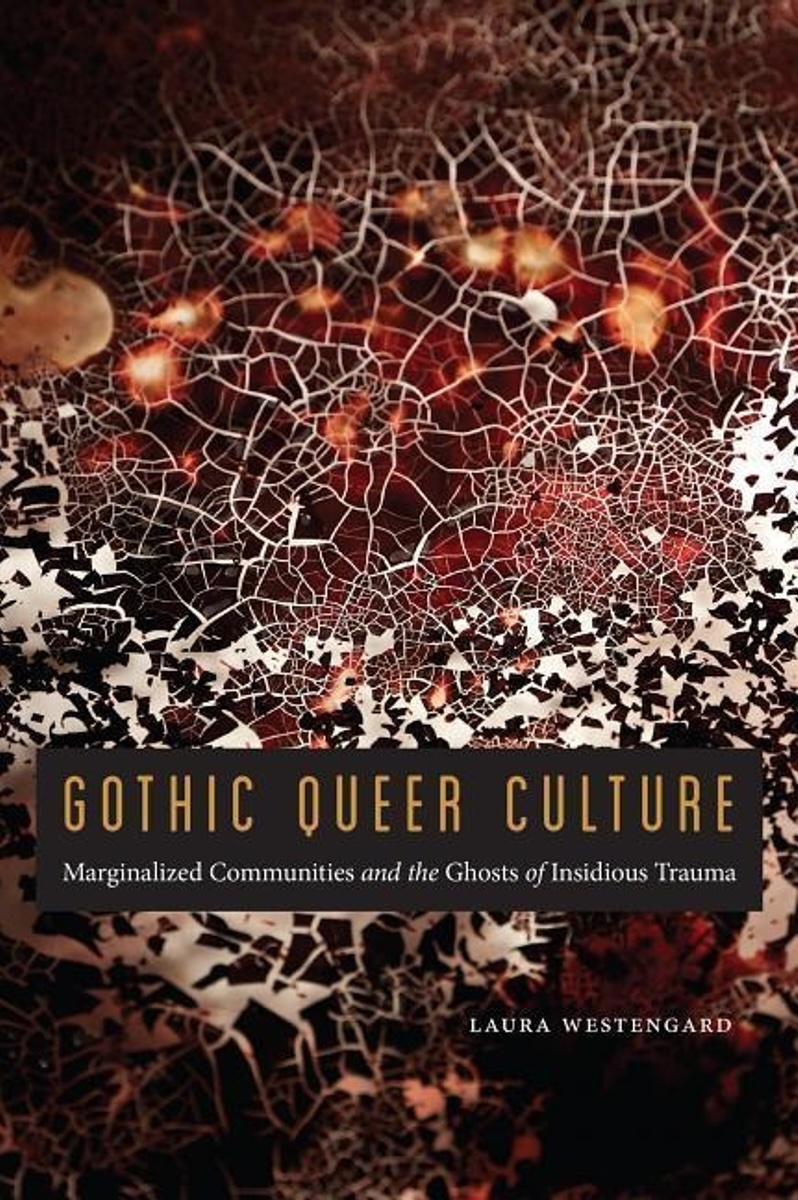Laura Westengard’s GOTHIC QUEER CULTURE is mostly what it says on the tin: it’s a collection of essays examining goth literature and queer culture over the past few centuries, focused on how those in that community are often considered monstrosities and how they (and by they, I mean: people like myself) embrace and own it. In case you haven’t realized it? I’m goth as fuck.
What I didn’t expect from it was how it’s also 100% about trauma. Probably wouldn’t have read it if I’d known that before diving into it! I have been repeatedly told by numerous professionals: “Take a break from trauma-centric works!”
(If I’d read the subtitle “Marginalized Communities and the Ghosts of Insidious Trauma” I probably would have realized that but …I’m dumb and didn’t bother to read that far until the book arrived at my doorstep. I was hooked on the title alone and couldn’t help but read it.)
“Gothicism is perhaps best characterized by its excess, bringing the disruptive, the unspeakable, into our field of vision.”
I’ve touched on this before, but uh, from my pre-teen years into my 20s? Pretty fucking traumatic. I really put myself through the wringer. I’m still digging through everything I hid and buried, from myself, from everyone. I’ve been in trauma therapy for a while now. Didn’t really realize any of it at the time — who does when you’re living it? — but fuck. I hope to hell you haven’t had to deal with anything severely traumatizing but if you have? Get yourself to a trauma therapist. Seek help. It’s the best thing you can do for yourself.
I don’t mean to oversell — plenty of folks have been through far worse than I have — but we all have our own terrible journeys in one way or another, don’t we?
What GOTHIC QUEER CULTURE instills is that those who lean towards the gothic subculture, especially if one is queer or bent? You’ve been through a lot of shit and have been weathered and found some sort of calm through this dark community, despite feeling like one is a societal aberration and have been treated like shit, and often still are.
I won’t go as far as to embrace the central thesis of these essays — that goth subculture is innately queer, despite the fact that I identify as both queer and goth — but I also won’t deny it. For me, the goth subculture has always been about simply accepting the deviants, those cast aside from mainstream society and — yes — that definitely includes those who are queer and marginalized, more often than not.
I have mostly lived in goth and queer communities. These have always been safe spaces for me. You can embrace who you are, how you present yourself; you don’t have to feel like you have to put on a facade. You can be genderqueer! You can be non-binary! You can be androgynous! You can be a weirdo cishet that just wants to dance to the point where you feel abandon! You can just be yourself and folks will appreciate and embrace you! It sounds hippie-dippy, but that is absolutely the experience I’ve had in Chicago’s goth community since the moment I moved here and I love it.
We are the misfits. We have been spit on. We have been slandered. We have been abused. When I was younger and lived in Indiana? I felt like every day I went outside I was putting myself at risk, simply for looking and presenting the way I did and rightfully so, as I have been in more than a few situations where I realized: “Oh, fuck, these people are absolutely against me and are definitely going to go to town on me if I don’t do something.”
“If we recognize that a traumatically informed gothic aesthetic was and continues to be central to queer cultural production — critical theory, popular culture, literature, art, performance — it becomes clear that resistant and subversive queer culture is gothic at its core.”
GOTHIC QUEER CULTURE recognizes all of that, albeit couched in academic terms and references. It’s goddamn rare to find a text that encapsulates what I’ve experienced in a manner that is wrapped around the subculture I grew up with. It’s safe to say? I felt super seen. This text isn’t for everyone as it is extraordinarily specific but it was astounding for me and it might be for you.
You can pick up a copy via the University of Nebraska!
